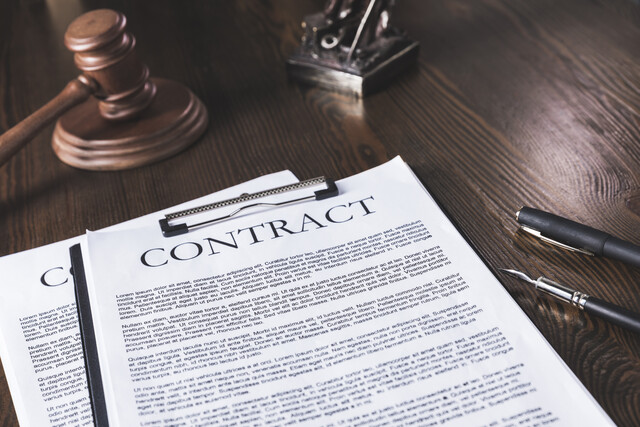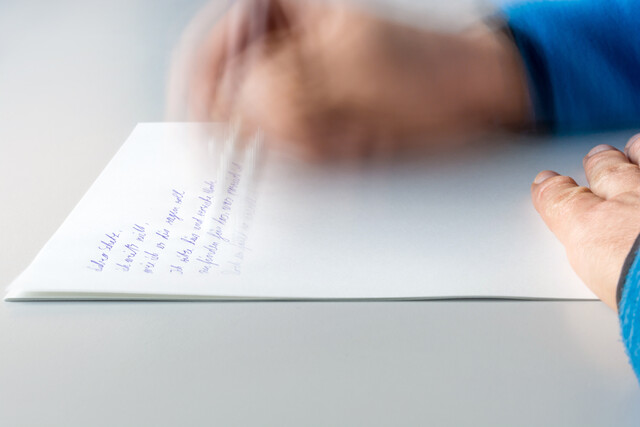|
Need for Speedwriting � Taking Notes � Brainstorming � Internal Editor � Writing Reports, Articles, Books |
Welcome to the World of Speedwriting!
There are many people who believe that they would learn more and ultimately do better in school if they could write faster so they could take better and more complete notes. There are other people who know that their lives would be so different if they could just mine all that material that is inside their head so that they could write and potentially publish that material.
Both groups of people face the same problem. They simply can't write fast enough. This course will take you through a number of steps to learn Speedwriting, both for taking better and more complete notes, all the way to the point of being able to write faster and be much more productive with your writing time than ever before.
Increasing the speed at which you take notes will certainly help you to become more successful in school, but only if you can read and understand those notes later, and if you practice these methods on a regular basis, turning them into the tools that they are meant to be.
You will never master the techniques of speedwriting if you don't take the necessary time to practice these exercises. You'll need discipline to establish specific writing times and sticking to them.
If, however, you intend to be smarter, wiser, more successful, and more prolific than the other people in your class, in your university, or your place of work, then you are in the right place.
Taking Notes
When discussing the various aspects of Speedwriting, one of the first complaints is, "I can't keep up with my instructor's lectures! He/She talks too fast!"
Most instructors believe that taking notes is part of the critical thinking aspect of any class. YOU have to decide what is important, and make a note of each important fact.
Next, try taking notes on a longer program, perhaps watch a documentary and take notes for 15 � 30 minutes. Again, evaluate how well you did.
Brainstorming
You've all probably been involved in a "brainstorming" session, and most of the time the ideas come in slowly enough that the person at the front of the room is able to write down all your ideas that are shouted out, or someone else in the room will remember what was said and all the "brainstormed" words or ideas eventually find their way onto the chart or board.
However, have you found that when you have a brainstorming session all by yourself you have SO many ideas that you can't keep track of them, and you know that by the time you've written down all your ideas, some of the best ones have just floated up into the stratosphere and for the life of you, you cannot recall them?
This can be very frustrating and is about the worst way to begin a large project that depends a great deal on creativity. You will learn a couple of techniques for "brainstorming" that you will use from now on to help keep track of all those great ideas. There may be one or two great ideas that slip away, but you'll capture many more than you even knew you had.
The greatest impediment to writing fast is the Internal Editor
When you begin a new writing project, it is sometimes really hard to get your ideas down in any kind of order. It seems that as soon as you try to put your ideas down, the idea generator dries up! We've all had that happen! What if you could learn ways to make getting your ideas down on paper simpler, easier, and much less painful? You might be more interested in doing projects like this more often, wouldn't you?
It may interest you to know that there is one single reason your ideas "dry up". What would you pay to know the answer to that? The answer to that is deceptively simple. It is you. You are your own worst enemy when it comes time to get ideas down for a project on paper. Some people call it the "Infernal Internal Editor", and we will talk a lot more about this later. What you need to understand now is that unless you are able to keep your Internal Editor under control, you will always struggle with your writing, no matter what the project is.
Your Internal Editor is the result of perfectionism, of struggling to turn in the best paper, article or book that you can. As you write, you hear the words, "You're kidding me! Who is going to read that mess? You're no writer. Leave it to someone who really knows what they are doing�"
�and on and on.
We live in such a competitive society today that we are constantly judging others and ourselves, just as we know we are being judged in turn. We take it upon ourselves to start the judgment process as soon as we begin to write, and we turn into our own worst enemy.
WE talk ourselves out of being able to write almost before we even start. What if it isn't good enough? What if it isn't right? What if�
Your assignment for this first article is to begin to listen to that Internal Editor. What types of thoughts run through your mind as you write?
Some of us had hyper-critical parents, grandparents, siblings, or friends who felt their whole life was dedicated to telling you where you went wrong with something. That type of judgment is enough to keep most people from trying something, and it is a real tragedy. We have immensely talented people who are too afraid to take that first step because they fear the judgment that starts inside their own head!
Listen to your internal editor. What does he/she say? Then stop a moment and ask yourself, "Is this true about me?" Most of the time, it's not true, but because we fear judgment so much, we will not attempt something. We're defeated long before we even begin. In order to get the most out of the Speedwriting article, you absolutely must contain your Internal Editor.
We will talk more about the Internal Editor, and include ways to eliminate listening to the words that stop you before you even begin. Speedwriting can help you get material written a great deal faster than usual, however, you will need your Internal Editor to help you edit the material once you have your first draft done. Speedwriting does not create completely polished writing the first time around.
Writing Reports, Articles, Books
Some of you are taking this Speedwriting article because you are a writer, and you need to learn how to write faster. When you write faster, you are more productive and can make a lot more money, right?
|
Elements of Speedwriting in Taking Notes
|
This is where we will begin the real nuts and bolts about Speedwriting. The only way to take notes faster is to learn to write faster, and practice the techniques in this chapter.
How did your note-taking test go? Was it relatively simple to take notes from the short news story? Did you find it more difficult to take notes from a longer documentary-type program?
Most people find that they can keep up pretty well with a speaker if they are only talking for a short period of time. Part of the reason for this is that the speaker has already shortened the presentation to the most important or key elements.
The other reason is that your mind can actually keep up for about five minutes, and fill in the blanks. However, when you move from one concept or idea to another, to yet another, suddenly your brain is no longer able to keep you up to date, and you do lose critical data.
Keywords
One of the first points to learn in Speedwriting is the use of keywords. You may have heard about keywords, especially if you have spent any time on the internet. SEO, or search engine optimization is based on keywords. These are words people typically type in when they are looking something up. What does that tell you about the words?
A hint is in the name�"key" word. The words people choose are "key" to their search. In learning about Speedwriting, you will be focusing on keywords a great deal. For example, when your instructor is lecturing, and you are frantically trying to take down everything he/she is saying, you realize that you are missing most of the point of the lecture.
Rather than trying to take down every single word your instructor says, focus instead on the "keywords", the important points that are being made. This will take a little practice, but once you get the hang of it, you'll be able to keep up with even the fastest speakers at your school.
Here is a bit of dictation taken from a lecture given to students of a memoir class:
This was given in just a couple of minutes. Most people can only handwrite 30 words a minute, and the average person can only type 60 words a minute, and yet the average person can talk from 100 to 300 words a minute. This segment of the lecture was over 450 words, given over the space of a few minutes. Let's say it was 5 minutes. Most of you would only be able to write 150 words in that 5 minute span. That means you would have lost about 300 words of the presentation.
So how do you get around it?
By focusing on keywords to get the point of the lecture/speech/presentation. Rather than trying to capture every word, you want to focus on the keywords of the presentation.
Here is the presentation again, but this time only the keywords will be highlighted:
Now, if you put each highlighted word from each sentence on a line of its own, it would look like this:
Writing memoir most life story
Panic first MY story I tell it
Rather than entire story pick high low points single episode shine
Most writing memoir start beginning
Lose 90% readers first page
Memoir is not different story
You expect entertained
Action reason keep reading story
Memoir no different
People want story keep reading
Promise then deliver not kids and grandkids interested reading
Nothing to bits and pieces together
No way include 80 years
Focus high points low points taught a lesson
Story always to tell
Why popular
Grandsons identify your desire
Daughter realizes like you
When identify story connection sticks
Boring to write boring to read
Stick with interesting stuff
This set of notes from the lecture based on keywords is 111 words, easily accomplished in five minutes. Does it make sense? It's not bad, is it? Read through the notes. Do you get the point of the talk? This is easier than you may think. One way to practice identifying keywords is to take a bit of writing, highlight the keywords and then write the keywords for each sentence on a single line. Once the thought is completed, move to the next line. This will help you when you review your notes.
Speedwriting Shorthand
Speedwriting is improved when you develop a shorthand for some more complex words or phrases. We use abbreviations all the time, and they do work to save time as long as you know what they mean.
One simple method for you to incorporate is to simplify words. When taking notes, or even typing, you can shorten longer words. This works especially well when you work in a specific industry. Let's say you're in the medical industry, you might consider the following abbreviations to save time when taking notes in your medical classes:
camy = cardio-myopathy
blpr = blood pressure
hyte = hypertension
hedi = heart disease
otco = over-the-counter
As you can see, the trick to these words is to use the first two letters of each word. You, alone, will be able to determine which words deserve this type of abbreviation, but you will discover that once you give a word(s) or phrase an abbreviation, you will also save time if you add these to your auto-correct in your word processor. Medical transcriptionists are genius when it comes to using abbreviations, acronyms, and macros to simplify their job. You can do exactly the same thing as long as you understand the "rules" you set up for yourself.
There are many abbreviations that are very common such as the following:
biz = business
w/ = with
w/o = without
And in this time of cell phones, many of the abbreviations that are common in cell texting can easily be transferred to taking notes in your sociology class. Get creative and you will discover a lot of ways to save yourself time.
Perhaps the most important point of all this is that you don't have to take down every word that is said. Take down only the important words, and even those, try to abbreviate when it makes sense to do so.
Abbreviation of Symbols
This section is often overlooked because it is obvious but for people who haven't considered it, consider all the symbols that are on your keyboard:
@ = at
# = pound
$ = dollar or money
% = percent
^ = insert
& = and
+ = plus or add
= = equal
Now come the symbols that you can insert in WORD:
� = trade mark
� = copyright
� = pound (UK money)
� = registered
� = plus minus, more or less
? = does not equal
? = less than or equal to
< = less than
? = greater than or equal to
> = greater than
� = divide or divided by
� = degree
? = alpha or beginning
? - omega or end
? = sum
? = infinity
� = multiply or times
�= paragraph
?= delta, heat, change
?= women
?= men
? = love, heart, romance
?= up, insert, increase
?= down, decrease
?- question mark, question, query
? = quote, quotation
?= note, music
Established vs. Your Own Version
Yes, there are Speedwriting courses that you can take, similar to Gregg Shorthand, and yet a bit simpler, however, for most of you, learning to accommodate your own abbreviations will result in a language all your own. There are people who have developed a Speedwriting system that has followed them all their lives. Some of them have such an intricate system that it is impossible for other people to translate, however, most people use a system that "makes sense" and even your classmates will be able to decipher your notes.
If you get together with a group of students and devise your own Speedwriting abbreviation dictionary (often based on the course of study you're in�i.e. medical, accounting, legal, etc.) you can count on one another to take notes if you happen to miss a class. The beauty of this method is that the person taking the notes won't have to decipher them for you. Some students have had the same core "note-takers" throughout their entire college careers.


























